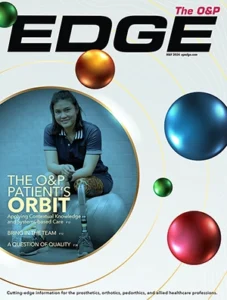The promise of AI has captivated healthcare, with visions of robots performing surgery and AI-powered diagnoses taking center stage. I was recently at a conference for medical practice managers where a significant portion of the exhibit hall had vendors promising that AI would make the physician’s life so easy. It would practically be “money for nothing.” (I can’t help but sing Dire Straits in my head when I type that.) While the potential for AI is undeniable, its implementation in allied health, particularly in poorly documented, narrowly focused practices like O&P, requires careful consideration. Even well-documented and straightforward medical practices are just dipping their toes into AI.
As I was talking with some of the early adopters at the management conference, the results they were getting were mixed, at best. I believe AI can streamline workflows and improve efficiency, but there are specific risks that emerge when we try to apply it fields with limited knowledge bases and a lack of high-quality, comprehensive training data.
Support authors and subscribe to content
This is premium stuff. Subscribe to read the entire article.




